A few fellow Orthodox and I are starting a fellowship that we hope will foster Orthodoxy in the American South and evangelize to the natives, while also respecting the indigenous and unique culture of Dixie. Go big, or go home, as they say.
The mission statement for the Philip Ludwell III Orthodox Fellowship’s can be read at our GoFundMe page, where our rationale is spelled out quite succinctly and beautifully by Dr. Clark Carlton, who I recently interviewed. His piece was chosen among three possible statements of principle. This included a thorough, theological, and thought-provoking article by Jeff Condra, a friend of Carlton’s and the fellowship’s brainchild, and an exposition by yours truly.
Once we launch our website, SouthernOrthodox.org, I’m certain we’ll publish Condra’s draft as one of the first feature essays. My latest guest post by Mrs. Olga, “The redneck hillbilly parish still standing,” is also a good example of some of the content you might eventually find at our blog.
But today, on this Good Friday, I thought I’d share with you my attempt at capturing the essence of what I think are our goals are in establishing this worthy and necessary venture. I pray you find my editorial edifying.
“Each of us has ancestors, both physical and spiritual,
who gave us [our] language, culture and, most importantly, [our] faith …
To lose touch with that past, with those ancestors,
means to become spiritually dry.”— His Holiness Kirill, Patriarch of Moscow and All-Russia
Some say that Orthodoxy suffers from a lack of converts here in America. While the faith of the One, True Church is shrinking in some ethnic enclaves of the Northeast and stagnating in other regions of the country, Orthodoxy is alive and growing here in the South. That’s because the people of the Dixie are steeped in faith. It’s in our blood.
When it comes to religion, the postbellum American South has been called many things. “Christ haunted” by Flannery O’Connor and “peculiarly Christian” by W.J. Cash. Richard M. Weaver said it was a land of “older religiousness” marked with a “noncreedal faith,” and H.L. Mencken disparagingly pegged it “the Bible Belt.”
None of these descriptives seem too promising at first glimpse, but upon closer inspection they elucidate the fact that Southerners speak a language touched by the Gospels. We walk in a land paved by God-fearing men and live by folkways crafted by Scripture. These traits may sometimes seem distant, but they remain enigmatically familiar. We are a remnant who are used to Christ, yet too many are still yearning to be reconciled with Him. Why?
Well, in a word: history. The South was not only subjected to military invasion, conquest, and occupation, perpetual economic attacks, political disenfranchisement, and an assault on the localist agrarian way of life, but there was (and is) a religious war being waged on the Southern spirit. This reconstruction is meant to replace God and nature with secularism, scientism, and materialism, and human-scale living with identityless-ness. Today, we would call this cultural Marxism, or more precisely, Southern cultural genocide.
However, because Christianity is our inheritance, the South has endured. The quiet piety innate in the Southern character has given this land and her people a durability in spite of the mercantile and humanist onslaught. Our roots are sturdy, but our branches are weak and our leaves are withered.
We may have gotten Jesus right, but unfortunately, we got Church wrong. Our namesake, Philip Ludwell III realized that too, and this in Colonial times, well before the Unitarian, Transcendental, and Rationalist philosophies forced their way down South. A native Virginian who was kin to some of the Southland’s greatest men, like George Washington and Robert E. Lee, Ludwell was received into Eastern Orthodox Christianity in 1738, making him the first known Orthodox convert in the Americas.
Ludwell practiced his faith in secrecy and solitude while serving in the House of Burgesses, serving in the Royal Governors Council, and living amongst his mostly Anglican or Deist contemporaries. Still, he remained faithful to the Church, leading his daughters to Orthodox conversion on Holy Wednesday 1762. The colonel (a militia title in Colonial Virginia) even translated into English a catechism, and some Liturgical and confessional services and prayers.
Like Ludwell, our Southron brothers and sisters have a nonconformist strength, which will benefit us in defending the ancient faith in our post-Christian world. We were never the majority historically and are most certainly outcasts now. Foreigners in our own land, thus, we’ve built up an armor that bodes well for evangelizing in our increasingly pluralistic and spiritually fruitless society.
Just as the War gave the South a national consciousness, the Southern experience has equipped her people with spiritual ammunition. It’s much harder to break a people who are used to suffering but only if they’re encouraged to be stout, not self-loathing; vigilant, not prideful; thankful, not shameful; bold, not complacent.
Just as a battle-worn identity is our heritage, so too are virtue, honor, and duty. We respect tradition, history, and ancestry, and believe in godly authority, hierarchy, and decentralization. We natives seek venerable “old-time” truths, not popular feel-good fictions. Our customs fully balance self-reliance and surrender, self-interest and selflessness, the individual and the collective. So many Orthodox elements already resonate deep within Dixie’s culture.
This is why the Southern identity can be used as a tool to sow the seeds of Orthodox Christian identity, while Orthodoxy can help to protect our hospitable and historic homeland. These are not mutually exclusive identities at all, for they can work in concert – a symbiosis uniting the divine and universal with the Southron spirit. As St. Tikhon of Moscow said, the Orthodox Faith is “the best and most reliable way to preserve and support your national character.”
So, let’s baptize what’s here. Let’s bring Orthodoxy to the “Southern nation” and consequently endow that tradition as a healthy and organic expression, not a theoretical idea. Just like when Jesus talked to the woman at the well of Jacob (Photine of Samaria) and stressed His belonging to the Jewish nation as to better communicate His words, we Orthodox Southerners will speak the language of our fellow Dixians. The often shallow cup of immigrant missionaries simply cannot help to quench a people’s thirst for truth as lovingly as can kinfolk.
I heard it said by a priest once that Orthodoxy propagates in the South like a native plant. So, let’s regenerate our people back to Christ. Let’s illumine them to the authentic Church and foster true reconciliation. Let’s tend to our fig tree (or in our case, perhaps it’s a dogwood or magnolia), bring forth the spiritual fruits thereof, and protect our beloved Southland that has for so long nurtured these roots. It’s time to come home, y’all.
Deo vindice.
Be sure to check out The Philip Ludwell III Orthodox Fellowship mission statement and crowd-funding page. Donations of any amount would be greatly appreciated. And please do take a listen to or watch my conversation with Dr. Carlton, in which he explains the organization’s background and fleshes out some of our ideas.
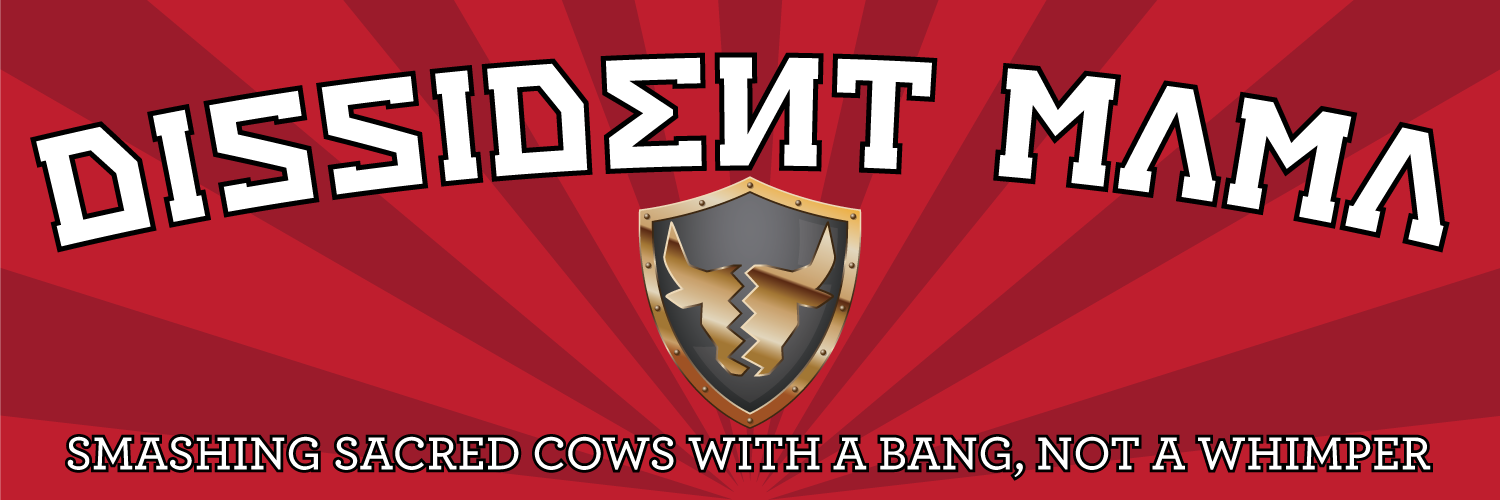
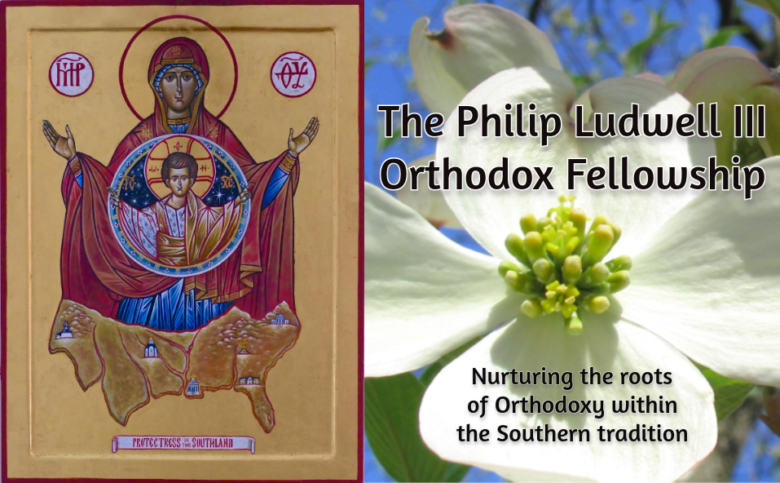

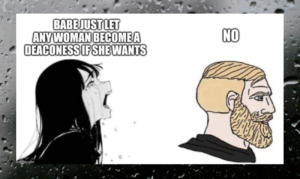
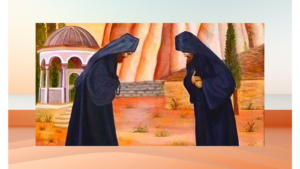
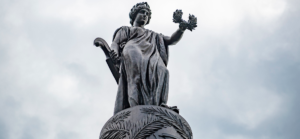
Comments
I really relate to the statement that a war is being raged on the Southern spirit. I see it everyday, all around me. I’m starting to feel like a stranger in the land of my birth. Everything about my people seems to be blowing away in the wind precisely because it isn’t anchored to anything. Billy Bob’s First Church of the River isn’t anchoring anyone’s soul. We need to start being honest about that in the South. We are more than highschool football and weekend boat trips. Our morals are more than voting Republican and backig the blue.
Author
Here here, Olga. That is a bitter pill for many Southerners, but a much-needed medicine nonetheless. I pray the fellowship will reach people who feel like you (and I) do oftentimes: like foreigners in our own homes. Indeed, the ancient faith IS the anchor.
Excellent article. The South is ripe for true unadulterated Orthodoxy, and the Church in America is in need of tradition-loving, unreconstructed Southern Christians! May Orthodixie arise!
Author
Thanks, Mike! We need to bring Dixians “home” to Orthodoxy, and our Southern parishes will be all the more blessed for it.
Love this idea!!!
Author
So glad to hear that, Cathy! I pray you and yours will be part of this big adventure, and look forward to all the grand ideas and unique perspectives y’all come up with down in the Lone Star State. Here’s to loving our peeps and growing Orthodoxy!
I pray you have success in this great endeavor.
Author
Thank you so much, Trey. That means a lot, especially coming from a Southern Baptist gent! 🙂
An excellent endeavor, and one I would be interested in reading more about. In 2018, as a heartbroken Catholic, disillusioned by (another) abuse scandal, I reached out to our local Orthodox priest. One Sunday we attended Divine Liturgy and read a book about The Great Schism. I stopped short of taking a course St. Michaels offered on Church history, simply because I wasn’t in an emotional place to discern questions of authority or the Nicene Creed.
Author
Fascinating story, Brooke. “Heartbroken” and “disillusioned” is how a lot of people feel these days when it comes to what passes for Christianity in North America. You’re in Canada, correct? Things are pretty rough up there from what I hear. Please don’t give up. I know that in-person services are vital, but there are so many resources that can be tapped into for home church. Here’s one of my favorites, which is just brimming with nearly everything even a layman can use while “in the catacombs.” https://saintjonah.org/
Girl, I’m in Texas. We are doing better than most, but not good enough. Thanks for the link. ❤️
Author
Oh, ha ha. I am pushing 50 this year, so I’ll just blame the mistake on my age. 😉 Seriously, I am horrible with names. Sorry!
But now I remember, you’re the Buck fan who went from “typical suburban mom who volunteered at our Catholic Church” to dissident in just a little over a year. Please refresh my memory: are you still attending Catholic church or are you testing the waters of Orthodoxy? Heck, you might even be a catechumen. Do tell!
If you’re ever in the Houston area, you should consider visiting St. Jonah. It’s my father confessor’s parish and I know he would love to meet you. I hope too you consider being a part of the fellowship. In my opinion, the more Texans, the better. But I am partial since I married a Pasadena boy!
Any thoughts on a Benedict Option type setup or rumors of one trying to get off the ground?
Author
Any thoughts about creating an intentional community for Orthodox Christians? Why, yes! I think about it all the time, but it still may take more tyranny and persecution to light a fire under traditionalist Christians to actually pull the trigger on such a huge and counter-cultural endeavor. Conservative Protestants are pulling it off out in Moscow, Idaho, and my pal Michael Sisco wants to get one going in West VA for Orthopeeps. He talks about it here > http://www.dissidentmama.net/dissident-mama-episode-21-michael-sisco/
But yes, this is something I think every devout Christian in the US and Canada should be seriously considering. Have you heard about any leads?!?
Will you be working with the Ludwell organization that already exists?
https://www.ludwell.org/about-us/
Author
Deacon Nicholas,
Great question. And yes, Ludwell.org knows about the Ludwell Orthodox Fellowship. Clark Carlton has communicated with Nicholas Chapman to explain our intent, and the two agreed that the organizations could (and should) work together, sharing content on occasion, and helping each other out with material, ideas, etc. I believe it will be a mutually beneficial relationship for both!
Mrs. DM,
I was hoping to message you privately but after a bit of searching could not find an e-mail to contact you directly with. So I’m reaching out here and hopefully we can follow up.
I am from Texas, am pro-white (and pro-southern by extension,) and find Orthodoxy to be the most intriguing of Christian ‘options’ of faith. I have been an agnostic ‘lost soul’ for at least several years, and am now in the process of investigating spiritual paths forward. I was hoping you would know a church or person(s) in my area (DFW) and could point me their way. As well as any resources to learn about Orthodoxy. I consider myself to be above average in general education but fairly ignorant on Christianity, although I was raised in a Catholic setting with parents of mild (once moderate) commitment to their church.
Lastly, thanks for all your work on the podcasts/interviews, I’ve listened to at least 90% of them, and I understand that there were some good leads for information amongst them, however listening while at work prevented me from keeping notes so a nudge from you in a good direction would be helpful.
-Patrick
Author
Glory to God that your heart is open to Holy Orthodoxy! For now, let me nudge you to a parish in your neck of the woods: St. Nicholas Russian Orthodox Church in McKinney, TX > http://www.orthodox.net/
The archpriest there is Father Seraphim Holland, who is a strong shepherd and Southern compatriot. He truly is a warrior for Christ. I say, start there at his parish site and check out all the readings in the “Spiritual Things” section of the navigation bar. You can also listen to his homilies via the RSS links but you can also watch them (as well as some other of his short but powerful vids) on his youtube channel > https://www.youtube.com/user/orthodoxnet
By the time you make it through all that, God willing, the Ludwell Orthodox Fellowship site will finally be launched. SouthernOrthodox.org is going to be resource-rich so I pray it will be a place where non-woke inquirers, “lost souls” like you say, will come to rely upon for info and learning and taking a deeper dive into both the Orthodox faith and the role Dixie is playing in its flourishing here in America.
In Christ, Rebecca/DM 🙂